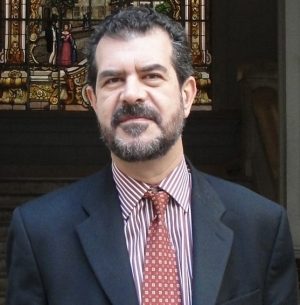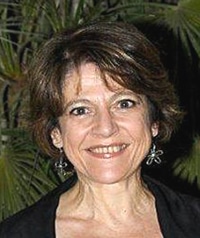Gli Stati devono urgentemente includere disposizioni a tutela dei migranti e contro il traffico di esseri umani nella loro strategia di risposta al COVID-19, quali misure preventive, effettuazione di tamponi, terapie mediche, servizi sanitari e assistenza sociale, hanno dichiarto congiuntamente i due esperti indipendenti ONU sui diritti umani, Felipe González Morales, Relatore speciale sui migranti e Maria Grazia Giammarinaro, Relatrice sul traffico di esseri umani.
Gli Stati, hanno aggiunto, dovrebbero regolarizzare i migranti privi di documenti quando necessario per facilitarne l’accesso ai servizi sanitari durante la pandemia, hanno spiegato, aggiungendo che migranti in situazioni irregolari, richiedenti asilo, persone vittime di sfruttamento e traffico sono particolarmente a rischio contagio vista l’assenza di qualunque protezione negli ambienti dove vivono o lavorano.
Per saperne di più:
UN experts call on Governments to adopt urgent measures to protect migrants and trafficked persons in their response to COVID-19
GENEVA (3 April 2020) – States worldwide must urgently adopt inclusive measures aimed at protecting migrants and trafficked persons in their national response to COVID-19, such as prevention measures, testing, medical treatment, health services and social assistance, two UN human rights experts said today.
“States should also take steps towards the regularisation of undocumented migrants whenever necessary, in view of facilitating their access to health services during the fight against the pandemic,” said the UN Special Rapporteurs on migrants, Felipe González Morales, and on trafficking in persons, Maria Grazia Giammarinaro.

“Migrants in irregular situations, asylum seekers, exploited and trafficked persons may be particularly at risk of COVID-19 because their living or working environment may expose them to the virus without necessary protection,” they said.
“I am concerned that some migrants, including asylum seekers, do not have access to minimal protection against the contagion, not even clean water to wash their hands. Many live in overcrowded shelters or detention centres without the possibility to observe physical distance. Some migrants are working in agriculture or in informal sectors without any protection measures,” González Morales said.
“People who have been granted residence permits on grounds of trafficking and have a job or are participating in a training programme should be allowed to obtain work permits through facilitated procedures. Such a measure aims to avoid precariousness and to ensure their full access to healthcare,” Giammarinaro added.
The UN experts welcomed the decision adopted by some States to grant temporary residency rights, including access to social and health benefits to migrants including asylum seekers, amid the fight against the pandemic.
“No one should be left behind in this global fight against the pandemic. Governments must adopt measures ensuring every individual in the national territory, regardless of their migration status, is included and has access to health services in order to achieve successful containment of the COVID-19 pandemic,” they said.
The UN Special Rapporteurs also called for an automatic extension for at least six months of all protection and assistance programmes for migrants in vulnerable situations and trafficked persons that are close to their expiration date, to ensure continuity of survivors’ social inclusion process.
“The protection granted to unaccompanied children close to adulthood must also be extended for a minimum period of six months. Particular attention should be given to inadequate or overcrowding facilities where migrants are accommodated,” the experts said. Residents at such facilities, whether open or closed, should be provided with accurate and accessible information on the COVID19 outbreak, practical advice on preventing infection and access to clean water, sanitation facilities and other prevention materials.
“In overcrowded facilities where it is impossible for all residents to practise physical distancing, alternatives venues should be identified and consideration should be given to releasing those who have a place to stay in the community. It is crucial to establish protocols with local health providers to ensure access to testing, medical consultation and treatment of all residents in immigration facilities,” said the Special Rapporteur on the human rights of migrants.
“Human rights must be at the centre of the response to the COVID-19 pandemic. Inclusive measures aimed at protecting the rights and health of the whole population, including all migrants and trafficked persons, regardless of their migration status, are urgent and necessary, and can contribute to the effectiveness of the general national measures against COVID-19,” the UN experts said.
ENDS
Mr. Felipe González Morales (Chile) was appointed Special Rapporteur on the human rights of migrants in June 2017 by the UN Human Rights Council. As a Special Rapporteur, he is independent from any government or organization and serves in his individual capacity. He is Professor of International Law at the Diego Portales University, in Santiago, Chile, where he is also the Director of a Master’s programme in International Human Rights Law.
Ms Maria Grazia Giammarinaro (Italy) was appointed as Special Rapporteur on trafficking in persons, especially women and children, by the UN Human Rights Council in June 2014. She has been a Judge since 1991 and currently serves as a Judge at the Civil Court of Rome. She was the Special Representative and Coordinator for Combating Trafficking in Human Beings of the OSCE, and served in the European Commission’s Directorate-General for Justice, Freedom and Security in Brussels, where she was responsible for combating human trafficking and sexual exploitation of children. Ms Giammarinaro drafted the EU Directive on preventing and combating trafficking in human beings and protecting its victims.
The Special Rapporteurs are part of what is known as the Special Procedures of the Human Rights Council. Special Procedures, the largest body of independent experts in the UN Human Rights system, is the general name of the Council’s independent fact-finding and monitoring mechanisms that address either specific country situations or thematic issues in all parts of the world. Special Procedures experts work on a voluntary basis; they are not UN staff and do not receive a salary for their work. They are independent from any government or organisation and serve in their individual capacity.

